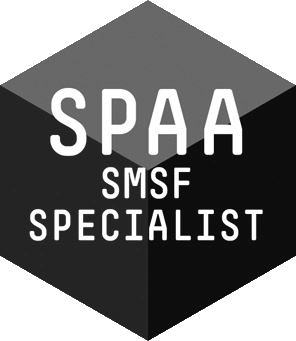As a tradie (tradesperson) in Australia, managing your tax obligations can feel overwhelming, especially when you're busy managing staff, answering client queries, and working on-site. And let’s face it, paperwork isn’t your favorite thing to do!! But whether you’re a plumber, electrician, carpenter, or any other type of tradesperson, understanding your tax responsibilities and making the most of potential deductions is crucial for staying on the right side of the Australian Taxation Office (ATO) and for making your business a success.
In this article, we’ll explore key tax tips to help you manage your finances efficiently, keep more of your hard-earned money, and ensure that your business complies with the law.
- Understand Your Tax Obligations
The first step in managing your tax as a tradie is understanding your tax obligations. Whether you're a sole trader, part of a partnership, or running a company, you need to keep track of your income and expenses and report this to the ATO annually. You’ll be required to lodge an income tax return that details your business’s financial position.As a sole trader, you’re taxed on the net income from your business, meaning the income left after deducting your business expenses. Keep in mind that tradies often have unique tax situations that require careful attention, so working with a tax professional who understands your industry can save you a lot of headaches. - Claim Business-Related Expenses
One of the key benefits of being a tradie is the ability to claim deductions for expenses directly related to your work. These deductions help reduce your taxable income, and therefore your tax liability. However, the ATO has strict rules around what can and can’t be claimed, so it’s essential to keep good records and ensure that your claims are legitimate.Common deductions for tradies include:
· Tools and Equipment: You can claim deductions for tools and equipment purchased for your business, including power tools, hand tools, and machinery. If you use these items both for work and personal use, you can only claim the portion that relates to your business use.
· Vehicle Expenses: If you use your vehicle for work, you may be able to claim a deduction for fuel, maintenance, insurance, and registration costs. You can either use the cents per kilometer method or the logbook method to calculate your deduction.
· Workwear and Safety Gear: Clothing and gear such as uniforms, high-vis vests, steel-capped boots, and hard hats are tax-deductible if they are necessary for your job. However, general clothing like jeans and T-shirts are not deductible.
· Home Office Expenses: If you run your business from home, you may be eligible to claim deductions for a portion of your home office expenses, such as electricity, phone bills, internet, and office supplies.
· Training and Education: If you undertake courses or certifications to improve your skills or qualifications related to your trade, these expenses are tax-deductible.
Remember, if you are unsure whether an expense is deductible, it’s always a good idea to seek advice from a tax professional. - Keep Accurate Records
The ATO requires that you keep accurate and detailed records of all your business income and expenses. This will not only help you prepare your tax return accurately but also ensure that you are prepared in the event of an audit.Some of the records you should maintain include:· Receipts for all business-related purchases· Invoices issued to clients· Bank statements· Vehicle logbooks (if you are claiming vehicle expenses)· Proof of any other business expense
You can keep records electronically using accounting software such as XERO. The ATO also offers a free online tool called myDeductions, which can help tradies track their expenses and keep track of records via an app; a report can be generated at tax time. - Pay GST If You Need To
As a tradie, if your business has a turnover of $75,000 or more per year, you are required to register for Goods and Services Tax (GST) with the ATO. Once registered, you’ll need to charge GST on the services you provide and pay GST on the goods and services you purchase for your business.
At tax time, you’ll need to lodge Business Activity Statements (BAS) regularly (usually quarterly or annually) to report your GST obligations. The key to managing your GST is ensuring that you keep accurate records of all sales and purchases and pay the GST you owe to the ATO.
If your turnover is less than $75,000, registration for GST is optional. However, if you choose not to register, you won’t be able to claim GST credits on your business-related purchases. - Superannuation for Sole Traders and Employees
Superannuation is a critical component of your financial planning, and as a tradie, it’s important to ensure that you are paying yourself superannuation if you’re a sole trader or as part of your employment arrangements.
· For Sole Traders: While you are not required by law to pay yourself superannuation, it’s a good idea to make voluntary contributions to secure your retirement. You can claim a tax deduction for contributions you make to your superannuation fund.
· For Employees: If you have employees working for you, it’s mandatory to pay them superannuation if they earn $450 or more per month. The superannuation rate is currently 11.5% (scheduled to increase to 12% as of 1 July 2025) of their ordinary time earnings.
Be sure to set aside money for superannuation regularly to avoid falling behind. It’s also worth noting that if you are working as an independent contractor for a company, you may need to negotiate superannuation payments as part of your contract. - Consider the Structure of Your Business
If your business has grown or is expected to grow significantly, you may want to consider changing your business structure. Operating as a sole trader is the simplest and most common option, but it comes with risks, as your personal assets are not protected from business liabilities.Switching to a company or trust structure may offer tax benefits, asset protection, and potential for better financial management. It’s worth discussing your options with a tax accountant or financial advisor to determine the most suitable structure for your business’s needs. - Stay on Top of Tax Deadlines
Make sure you meet all ATO deadlines to avoid penalties and interest on any unpaid tax. As a tradie, you might be subject to quarterly or annual reporting requirements, depending on your business structure and income.Keep track of deadlines for lodging your tax returns, paying your BAS, and making superannuation payments. If you miss a deadline, contact the ATO immediately to discuss your options and avoid penalties.
Conclusion
Tax time doesn’t have to be stressful for tradies if you’re organised and proactive. By understanding your tax obligations, keeping accurate records, claiming legitimate deductions, and seeking professional advice when needed, you can maximise your deductions, reduce your tax liability, and ensure that your business remains compliant with ATO regulations. Whether you’re just starting out or are a seasoned tradie, these tax tips can help you stay ahead of the game and keep your financials on track.
Our Management Credentials




